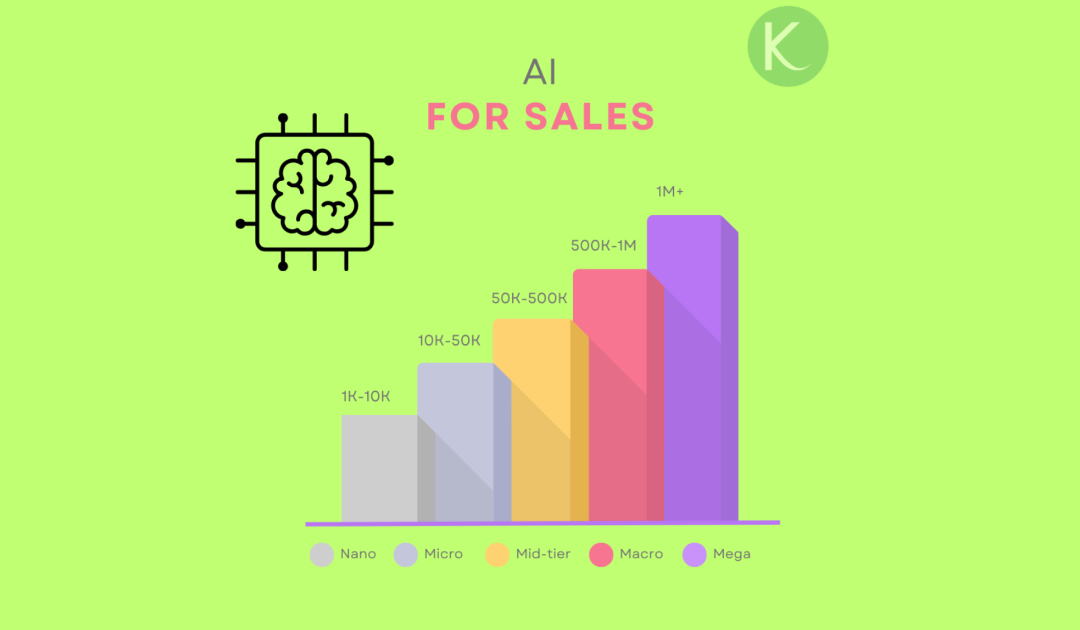
AI – A critical and game-changing tool for sales enablement
Artificial Intelligence (AI) is revolutionizing industries, and sales is no exception. By enabling more personalized customer experiences, automating routine tasks, and providing actionable insights, AI has become a critical tool for sales enablement. Here’s a comprehensive exploration of how AI can empower sales teams, improve productivity, and drive revenue growth.
Understanding Sales Enablement
Sales enablement refers to the process of equipping sales teams with the tools, content, and information they need to effectively engage potential customers and close deals. It includes training, technology, analytics, and resources to ensure sales representatives operate at peak performance.
AI enhances this process by introducing automation, insights, and precision that traditional methods can’t match. From lead generation to deal closure, AI can optimize every step of the sales cycle.
Benefits of AI in Sales Enablement
Improved Lead Generation and Qualification: AI-powered tools can identify and prioritize high-quality leads by analyzing historical data, customer behaviors, and market trends. Predictive analytics platforms use algorithms to score leads based on their likelihood to convert, enabling sales reps to focus their efforts on the most promising opportunities.
Enhanced Personalization: AI enables hyper-personalized outreach by analyzing customer data such as past interactions, purchase history, and preferences. This allows sales teams to craft tailored messages and offers that resonate with individual prospects, leading to higher engagement and conversion rates.
Automation of Routine Tasks: AI-powered chatbots, email assistants, and CRM tools can automate repetitive tasks like data entry, appointment scheduling, and follow-up emails. This allows sales professionals to dedicate more time to strategic activities, such as building relationships and negotiating deals.
Real-Time Insights and Analytics: AI tools provide sales teams with actionable insights through real-time analytics. For example, AI can identify patterns in customer behavior or detect potential churn risks, enabling proactive interventions.
Enhanced Forecasting and Decision-Making: AI algorithms analyze historical sales data, market conditions, and customer sentiment to provide more accurate sales forecasts. These insights help managers make informed decisions about resource allocation, pricing strategies, and inventory management.
AI Tools for Sales Enablement
Customer Relationship Management (CRM) Systems: AI-enhanced CRMs like Salesforce Einstein and HubSpot leverage machine learning to provide sales teams with predictive insights, customer segmentation, and automated follow-ups.
Sales Intelligence Platforms: Tools like LinkedIn Sales Navigator, and InsideView use AI to gather and analyze market data, helping sales reps identify potential customers and understand their needs.
Chatbots and Virtual Assistants: AI-powered chatbots, such as Drift and Intercom, engage with prospects on websites, answer common queries, and schedule meetings, ensuring seamless interaction with customers around the clock.
Predictive Analytics Software: Platforms like Gong.io and Clari use AI to analyze sales calls, emails, and meetings, providing insights into what’s working and what’s not in the sales process.
Content Management Systems: AI-enabled content management tools like Seismic and Highspot help sales teams access and deliver the right content to prospects at the right time. These platforms often include recommendation engines that suggest the most relevant materials for each stage of the sales funnel.
Applications of AI in the Sales Process
Lead Scoring and Prioritization: AI uses predictive modeling to rank leads based on their likelihood to convert. For instance, a lead who frequently interacts with your website and downloads multiple resources is more likely to be interested in your offerings.
Sales Forecasting: AI can analyze past sales performance and external factors such as market trends or economic conditions to predict future sales outcomes. This helps sales managers set realistic goals and plan effectively.
Coaching and Training: AI-powered platforms like Chorus.ai and Gong.io analyze sales conversations to identify areas for improvement. These tools provide personalized coaching tips, helping reps refine their pitches and communication styles.
Cross-Selling and Upselling: By analyzing customer purchase history and preferences, AI can recommend complementary products or services. This not only increases average deal size but also improves customer satisfaction.
e. Customer Sentiment Analysis: AI tools analyze customer interactions to gauge sentiment and satisfaction levels. This helps sales teams address concerns promptly and maintain positive relationships.
Workflow Automation: AI automates administrative tasks such as logging interactions, updating CRM records, and generating reports, freeing up sales reps to focus on high-value activities.
Challenges and Considerations
While AI offers numerous benefits, its implementation in sales enablement also comes with challenges:
Data Quality and Integration: AI relies on high-quality data to deliver accurate insights. Organizations must ensure their data is clean, consistent, and integrated across platforms.
Change Management: Introducing AI tools requires training and change management to ensure sales teams adopt the technology effectively.
Cost and ROI: Investing in AI technology can be expensive, and organizations must evaluate the return on investment to justify the costs.
Privacy and Ethical Concerns: AI tools often handle sensitive customer data, raising concerns about privacy and compliance. Companies must adhere to data protection regulations like GDPR and CCPA.
Over-Reliance on Automation: While AI can automate many tasks, human judgment and relationship-building remain critical in sales. Organizations should strike a balance between automation and personalization.
As AI technology evolves, several trends are shaping the future of sales enablement:
Advanced Natural Language Processing (NLP): NLP advancements will enable more sophisticated chatbots and virtual assistants capable of handling complex customer interactions.
AI-Driven Personalization at Scale: Future AI systems will leverage larger datasets to deliver even more granular personalization across customer touchpoints.
Augmented Reality (AR) and Virtual Reality (VR): AI-powered AR/VR tools will create immersive sales experiences, such as virtual product demonstrations and walkthroughs.
Voice AI: Voice-activated AI tools will enable hands-free access to insights and real-time support during sales calls.
Ethical AI Practices: As concerns around AI ethics grow, organizations will prioritize transparency and fairness in AI algorithms.
AI is transforming sales enablement by enhancing efficiency, accuracy, and personalization.
A successful implementation requires careful planning, robust data management, and a commitment to balancing automation with human empathy.
Embracing AI is not just about staying competitive; it’s about reimagining how sales teams operate and deliver value in an increasingly digital world. Organizations that invest in AI-driven sales enablement today will be well-positioned to lead in the future.

